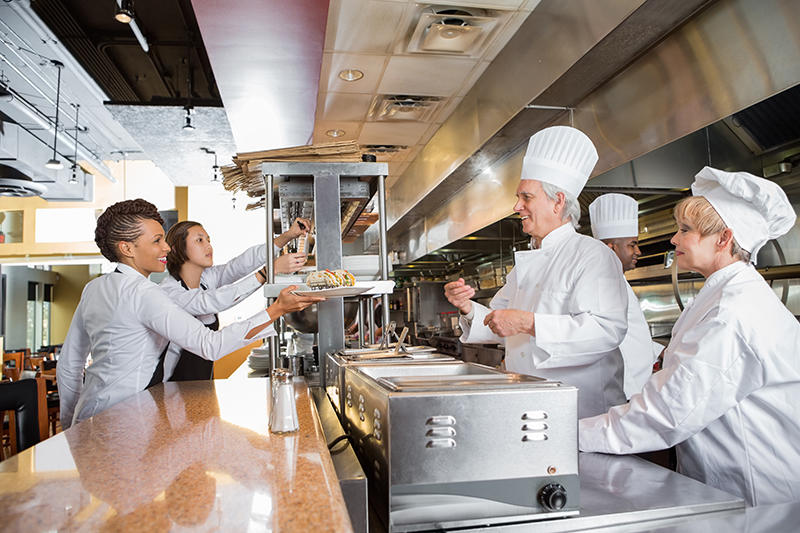Industry insights on skills needs
According to the Tourism, Travel and Hospitality IRC’s 2019 Skills Forecast, the top priority skills for the industry (inclusive of the Tourism, Travel and Accommodation sectors) are:
- Teamwork and communication
- Problem solving
- Resilience, stress tolerance and flexibility
- Self-management.
In addition, the top key generic skills for the industry (inclusive of the Tourism, Travel and Accommodation sectors) as identified by the Tourism, Travel and Hospitality IRC’s 2019 Skills Forecast are:
- Communication/Virtual collaboration/Social intelligence
- Customer service/Marketing
- Learning agility/Information literacy/Intellectual autonomy and self-management
- Managerial/Leadership
- Language, Literacy and Numeracy (LLN).
The top Accommodation Services-related occupations reported by the job advertisement data as being in demand included Domestic Cleaner, Chef, and Accommodation and Hospitality Managers, with the Marriott, Merivale Group and Discovery Holiday Parks identified as the top employers. In addition, the top generic skills in demand for this sector, as per job vacancy data, were communication skills, detail orientated and organisational skills.
The most common Travel Agency and Tour Arrangement Services-related occupation reported by the job advertisement data as being in demand was Travel Consultant, with Flight Centre Australia and Corporate Traveller identified as the top employers. In addition, the top generic skills in demand for this sector, as per job vacancy data, were organisational skills, detail orientated and communication skills.
Several factors had been identified in the Tourism, Travel and Hospitality IRC’s 2019 Skills Forecast as posing challenges and opportunities to the industry. These included changes around government legislation and regulation, skills and knowledge shortages, limited career progression, staff retention, and new technologies and digitisation.
Although the industry offers a variety of career pathways, it was highlighted in the Tourism, Travel and Hospitality IRC’s 2019 Skills Forecast that many of these pathways are unknown, and the prevalence of young and casual workers may create the perception that career pathways are limited. Steps are being taken to streamline qualifications and create new pathways to support the entry to, and visibility of, career progression across the sector. Linked to the prevalence of a young and casual workforce is the challenge of staff retention. The median age of the workforce is 26, significantly lower than the national average of 40 years. It has been raised that younger workers tend to have other commitments such as study, and been suggested that employers have concerns about attitude and reliability among the sectors workforce. In addition, regional areas are impacted by the migration of younger workers to cities and coastal areas, resulting in a limited pool of workers. The importance of creating visible career pathways has been reflected in the Queensland Tourism Workforce Plan, which suggests the industry needs to develop a distinct brand that promotes the industry as a desirable career opportunity.
New technology and digitisation have meant the required skills of the workforce are changing and will continue to change to reflect new working environments. Some of the key technological changes impacting the Tourism, Travel and Accommodation sectors include:
- Augmented Reality (AR) and Virtual Reality (VR) being used by businesses for content marketing to enhance the customers experience
- Artificial Intelligence (AI) Travel Bots are used as virtual chatbots and assistants to address holiday and travel enquiries
- M-commerce which includes buying and selling via smartphones and tablets, including mobile content purchases such as those made via ‘apps’.
The South Australian Visitor Economy Sector Plan 2030 clearly outlines the importance of front-line capability among tourism businesses in order to sustain and grow towards future revenue and tourism targets. Through widespread industry consultation as a part of formulating this plan for the South Australian visitor economy, it was identified that industry requires ongoing development and training in a range of areas, including ongoing business training, digital skills enhancement, customer service standards, tailoring experiences to emerging markets, encouraging entrepreneurship, professionalisation of business delivery, development and availability of commissionable products, and availability of quality consumer research to underpin operational and investment decisions.
Changing consumer preferences have been noticed in the Accommodation sector, with accommodation preferences among travellers changing over time according to the Tourism, Travel and Hospitality IRC’s 2019 Skills Forecast. This includes the growth in popularity of caravan parks and camping grounds, as well as licensed serviced apartments being a particularly popular choice among international and domestic visitors as an alternative to hotels.
The Australian Tourism in 2020 report disclosed that during the Black Summer Bushfires at the start of 2020 - some of the worst bushfires in Australia’s history - Australia suffered loss of life, damage to property, and devastation to wildlife and natural landscapes. As the bushfires were reported extensively by international media, the accompanying footage featuring photos and videos led to perceptions that the bushfires were more widespread than they actually were, damaging Australia’s reputation as a pristine tourism destination.
The Keeping Hotel Staff: Are Training and Pathways the Answer? article claims some of Australia’s most iconic travel destinations have been handicapped by a lack of tourism and hotel staff, with Hamilton Island being just one holiday destination that has been forced to run at reduced capacity because they can’t attract the necessary tourism and hotel staff. With international borders closed, Australian workers were reluctant to travel to distant destinations unless they are offered big wages and job certainty. The CEO of the largest hotel operator in Australia and New Zealand believes the secret to retaining staff in his industry was not necessarily higher wages but instead powerful incentives, such as definite career pathways.

